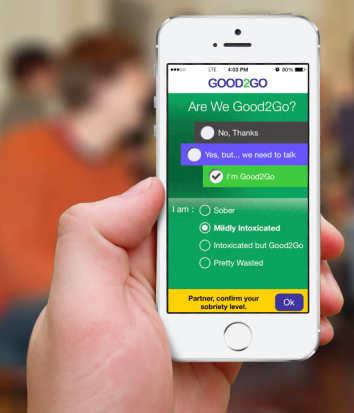EXPOSED: The Gray Area between Consent & Sexual Assault
With the recent press of the Vanderbilt rape trial, college campuses are reaching a tipping-point when it comes to education and activism about sexual assault.
The latest in these dialogues is EXPOSED: The Gray Area between Consent & Sexual Assault, organized by residents of the College Halls. This is the third in a series of HOT Topics at Warren & Moore.

“Sexual assault is a public health epidemic,” says Cara Tuttle Bell, the Director of the Project Safe Center, which opened this past summer. “There is a 1 in 5 is likelihood that women will experience sexual assault in their lifetime.” And most of these assaults happen as a result of what are termed “alcohol-facilitated campus-based events.”
Project Safe is for students affected by power-based personal violence. “When students don’t know where to go or what to do, we connect them to resources both off and on campus,” like the Psychological & Counseling Center.
There is no formal intake process at Project Safe, but any information shared with the Center is not legally confidential. If you report an incident, Cara explained, the Center will send that information to Vanderbilt’s Title IX coordinator, who will reach out to you to ask whether you want to launch an investigation. This is optional.
In the meantime, she said, the staff at the Center can provide students with any support they need: they can accompany students to court, counseling appointments, medical/STI examinations; they can provide alternative housing arrangements; and they can send a Dean’s notification to professors explaining that the student needs flexibility with assignments and classes (but not why).
She was joined by three students representing Party With Consent, all of whom are residents of Warren & Moore. Party With Consent a student organization with 30 chapters at colleges across the country. Its mission is to create a safe environment at social events and increase awareness of sexual assault. The founder is coming to Vanderbilt to speak in April.

After Krispy Kreme donuts and coffee and an overview of safe-space rules, we started the discussion.
First of all, what is the definition of “consent”?
In short, it’s saying yes, and neither people can give consent if they are incapacitated by alcohol. Consent must be understandable to both parties, and if at any point you become unclear, the burden is on you to get clarity.
On the face of it, it sounds simple. But there are several complications.
First, some people will drink just so that they will be able to give consent. This is not a question of whether or not that’s healthy, but a question of how that factors into a person’s ability to give consent. Part of this is that we often implicitly understand the decision to drink as a method for giving consent non-verbally, like in the Carrie Underwood song: “She’s probably saying, ‘I’m drunk’ and he’s thinking that he’s gonna get lucky.”
Consent-conscious men are often unsure about “interpreting” the cues of consent. This falls within the type of issues raised by “consent apps” like Good2Go. Cara says that these apps are useful insofar as they spark a conversation about sex and consent, but it’s important to remember that consent can be withdrawn at any moment, and the apps can be vague.

Second, what is the definition of “sexual assault”?
Very few instances of sexual assault involve strangers jumping out of the bushes. VUPD does offer a Rape Aggression Defense (R.A.D.) class, but this isn’t going to solve the systemic problem of sexual assault. “The national statistic is that 80 percent of sexual assaults are committed by acquaintances, but if we’re talking about what we actually hear from college students, I’m going to say from experience that’s it’s more like 95 percent.” The burden is not on the victim to fight off the perpetrator or run screaming out of the room.
It’s also important to recognize how far sexual assault is from good sex in a healthy relationship. The Director of We End Violence, Jeff Bucholtz, recently spoke at a campus event called Man Up: Masculinity and Popular Culture. He says there’s sloppy sex, then bad sex, then regretted sex, and finally, assault. The line between regretted sex and sexual assault is whether you are consenting at the time. Regrets happen the morning after, while sexual assault happens during the act.
So how can we navigate these murky waters? The answer that always comes up is to use the buddy system. Before you start partying, ask your friends to keep you accountable. If you see your friends in risky situations, don’t mind your own business. “On average, there are between six and 40 bystanders are present for the assault,” says Cara. The actions of bystanders was one of the most shocking features of the rape in summer 2013. “When you mind your own business, you are perpetuating the problem. There is no neutral.”